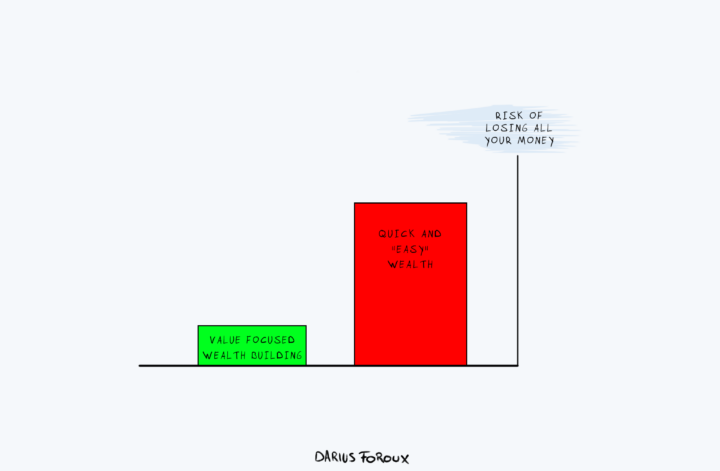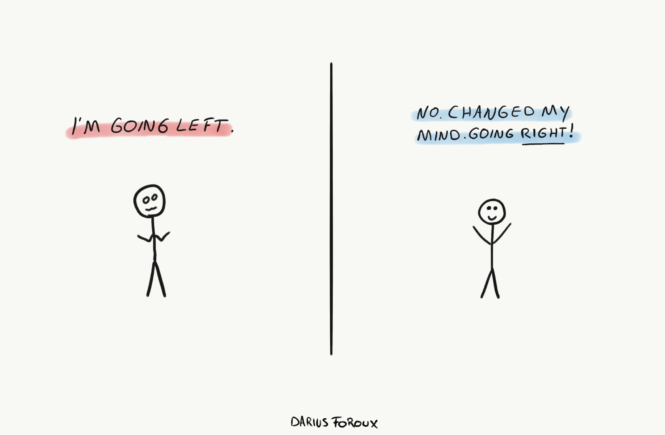We’ve all heard about the magic of compounding interest. Something equally powerful is mental compounding interest. Here’s some advice from the investor Charlie Munger that I read in the book, University of Berkshire Hathaway:
“He (Munger) got the idea to add a mental compound interest as well. So he decided he would sell himself the best hour of the day to improving his own mind, and the world could buy the rest of his time. He said it may sound selfish, but it worked. He also noted that if you become very reliable and stay that way, it will be very hard to fail in doing anything you want.”
I’ve been calling this idea the Munger Technique since I learned about this. But when I mention this to my students, team, or friends, the majority assumes that Munger is talking about a morning ritual.
That’s a wrong assumption. Munger said that he sold himself the best hour of the day. He used that hour to improve his mind.
When do you improve your mind?
Let’s think about that for a minute. Again, this has nothing to do with morning routines. For the past several years, people in personal development have been giving a lot of attention to morning routines.
I’m personally not a morning person, nor do I have a strict routine. Sure, I avoid checking my email, watching the news, or consuming useless content, but I don’t have a set routine in the morning before I start working. I know that some people like that structure. For example:
- Wake up at 7 AM
- Drink water
- Meditate
- Journal
- Read
- Go
And it must be in that order. That’s not me. I immediately start working. As long as I can tune out all the distractions of the world, I consider it a good morning. But when I read this advice from Munger, I asked myself two questions:
- When do I improve my mind?
- How do I improve my mind?
For me, improving my mind means improving my key skills: Writing, persuasion, decision making. I read books, make notes, and try to connect the dots between everything I learn. When I try to improve my mind, I only want to learn. The doing comes later. That’s how I do it.
But when do I work on improving my mind? Until now, I believed that I should do that in the morning. After all, that’s our best time, right? Well, not always.
What’s your best hour of the day?
One of my key beliefs is that life is cyclical. I learned this from studying successful investors like Howard Marks.
They often stress that on a day to day basis, stocks go up and down a lot. But if you look at the stock market over ten, twenty, or thirty years, you see a steady upward trend.
Something similar happens to our days. One day you might feel good, another day, you might feel tired. It’s just like the stock market. And that’s why I’m not a fan of morning rituals. It’s simply unrealistic to expect you to feel the same way every single day of your life.
I understand the argument for morning routines. The idea is that a good morning ritual will make your day better. But in my experience, that’s not the case.
Sometimes you simply wake up with less energy. Sometimes you have an emergency. If you have kids, your mornings are dedicated to them. In those cases, you can meditate all you want, you’ll still be tired or have to deal with that emergency.
You can think of many reasons morning routines don’t work. But the Munger Technique always works. Let me explain why.
Adopt a “Water Mindset”
If we adopt the mindset of an investor, and realize that our days might be up and down, how can we still be reliable over the long-term?
We can do that by adopting what I call a “Water Mindset.” I named this after Bruce Lee, who believed that we must be like water. Water always adopts the shape of its surroundings.
And the Munger Technique will help you to become like water. Give yourself the best hour of the day. And your best hour might be in the morning one day, and it might be after dinner the next. But it must be your best hour (not what some blogger says).
This technique has massively shifted the way I learn. I no longer get frustrated if I can’t learn in the morning, I simply realize it’s not my best hour. When it comes to improving your mind, you want to be in a relaxed, more flow-like state. You want to feel good, energetic, and rested.
And yes, as Munger says, it sounds selfish, but it works. Over the long-term, it will make you more reliable. When you improve your mind a bit every day, that results in mental compounding interest. It will become very hard to fail at anything in life that way.
You know what I realized over the last few months as I’m applying this technique? My best hour is often after dinner. Especially if I’ve worked out that day and was productive at work. I’ll have dinner, maybe relax a bit, grab a cup of tea and get down to it.
Before this, I would often watch some videos on YouTube or browse the internet. Often, you don’t even realize what’s the best hour of your day. You must be conscious and always keep adapting your habits so that it’s in line with your energy. Look, maybe my best hour will be the first hour after I wake up again. Who knows? But as long as you adopt the shape of water, you will adapt.
Give this Munger Technique a try. From tomorrow, give the best hour of your day to improving your mind. If you do it every day, the knowledge will compound.




